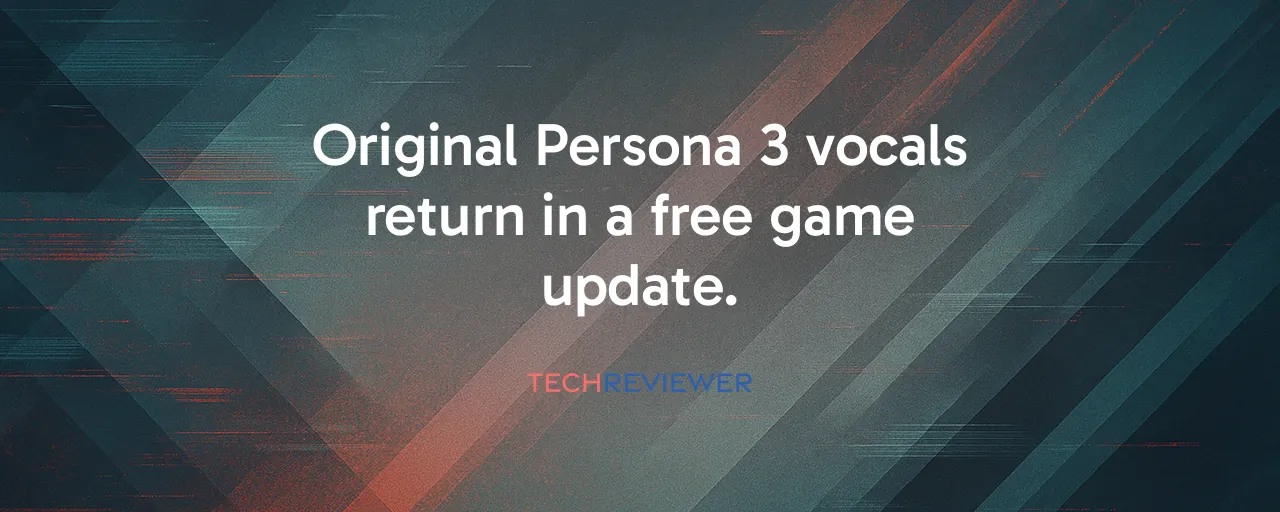A Nostalgic Voice Rejoins the Fight
When Persona 3 Reload launched in February 2024, it impressed players with updated visuals, smoother mechanics, and a fresh take on its timeless story. Yet, something felt missing for longtime fans: Yumi Kawamura's raspy, soulful voice, a cornerstone of the 2006 original. On October 23, 2025, Atlus answers those calls with a free update that brings eight of her classic tracks back, timed perfectly with the game's Nintendo Switch 2 debut. This move bridges two decades of fandom, letting players revisit Tartarus with the music that first defined their journey.
Kawamura's return carries weight. Her vocals on songs like Mass Destruction and Memories of You shaped Persona 3's identity, blending rock, hip-hop, and jazz into an unforgettable soundscape. The update lets players swap between her originals and Azumi Takahashi's 2024 recordings through a simple menu, giving everyone the power to tailor their experience. It's a thoughtful nod to both veteran players and newcomers discovering the game on the Switch 2, which has sold 5.8 million units since its June launch.
Why Music Matters in Persona's World
Music in Persona 3 serves as the heartbeat of the game's existential themes. Kawamura's tracks, paired with Shoji Meguro's compositions, amplify the story's weighty questions about life and loss. Songs like Burn My Dread -Last Battle- pulse with urgency, driving home the stakes of every Tartarus climb. The choice to reintegrate these tracks shows Atlus listening to players who associate Kawamura's voice with their formative gaming memories.
This isn't the first time music has sparked debate in a remake. Final Fantasy VII Remake faced similar scrutiny when it swapped synthesized tracks for orchestral versions, leaving some fans yearning for the original MIDI charm. Meanwhile, Tony Hawk's Pro Skater 1+2 struggled with licensing, omitting key songs from its classic soundtrack. Atlus sidesteps these pitfalls by offering both vocalists' versions, proving player choice can balance nostalgia with innovation. The lesson? Giving players options strengthens a remake's appeal without alienating anyone.
A Technical Win With Room for Growth
The update's brilliance lies in its simplicity. By adding Kawamura's tracks to the configuration menu, Atlus lets players toggle between old and new during dungeon runs and battles. This modular setup, already tested with Persona 5 Royal and Persona 4 Golden music packs, keeps the game's core intact while expanding its emotional range. It's a low-cost way to refresh a title that's been out for over a year, boosting replay value across PlayStation 5, Xbox Series X|S, PC, and now Switch 2.
Still, there are hiccups. The tracks only play in Tartarus and combat, leaving story scenes and social moments with Takahashi's vocals. This split might frustrate players hoping for a full nostalgic overhaul. On Switch 2, frame pacing issues and a 30 FPS cap have drawn criticism, despite the console's upgraded hardware. Atlus has promised future patches, but for now, these technical quirks could dampen the excitement for handheld players eager to dive back in.
Balancing Legacy and New Voices
Kawamura's return doesn't overshadow Takahashi's work. The younger vocalist brought a fresh energy to Reload, winning over many who embraced her take on the soundtrack. Offering both artists' tracks respects their contributions while catering to diverse tastes. It also sidesteps ethical concerns about replacing original performers, a topic that surfaced when Kawamura's age and vocal challenges influenced Atlus's initial recasting decision. By using her existing recordings, the update honors her legacy without demanding new performances.
This approach sets a precedent. As gaming leans harder into remakes, developers face tough calls on preserving artistic legacies. Persona 3 Reload shows how technology can bridge those gaps, letting players choose their experience. With Persona 6 on the horizon and Switch 2 gaining steam, Atlus's strategy could inspire other studios to blend old and new, keeping fans engaged while introducing classics to a new generation.
